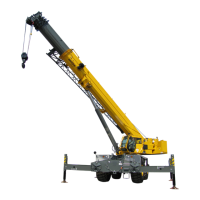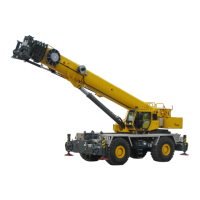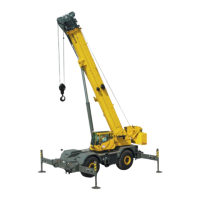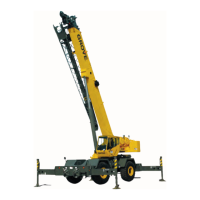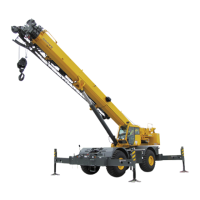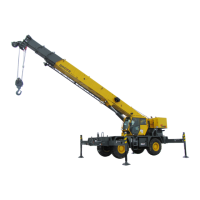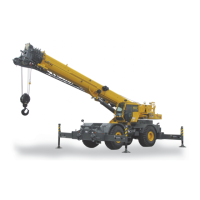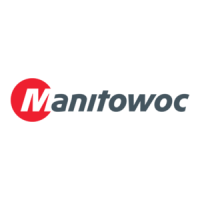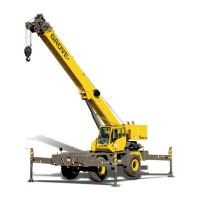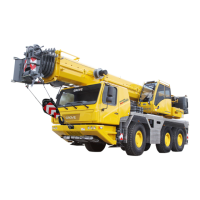5-1
RT9130E-2 OPERATOR MANUAL MAINTENANCE AND LUBRICATION
Published 3-1-2018, Control # 559-03
SECTION 5
MAINTENANCE AND LUBRICATION
SECTION CONTENTS
General . . . . . . . . . . . . . . . . . . . . . . . . . . . . . . . . . . 5-1
Environmental Protection . . . . . . . . . . . . . . . . . . . 5-1
Lubricants and Lubrication Intervals . . . . . . . . . . 5-1
Standard Lubricants . . . . . . . . . . . . . . . . . . . . . . . 5-3
Arctic Lubricants and Conditions . . . . . . . . . . . . . 5-4
Surface Protection for Cylinder Rods. . . . . . . . . . 5-7
Wire Rope Lubrication . . . . . . . . . . . . . . . . . . . . . . 5-7
Lubrication Points . . . . . . . . . . . . . . . . . . . . . . . . . 5-8
CraneLUBE. . . . . . . . . . . . . . . . . . . . . . . . . . . . . . 5-8
Cummins Oil Registration List. . . . . . . . . . . . . . . . 5-8
Safety . . . . . . . . . . . . . . . . . . . . . . . . . . . . . . . . . . 5-8
Steering and Suspension . . . . . . . . . . . . . . . . . . . 5-9
Axles . . . . . . . . . . . . . . . . . . . . . . . . . . . . . . . . . . 5-11
Drive Train . . . . . . . . . . . . . . . . . . . . . . . . . . . . . 5-13
Drive Train (continued) . . . . . . . . . . . . . . . . . . . . 5-15
Turntable. . . . . . . . . . . . . . . . . . . . . . . . . . . . . . . 5-17
Cab Tilt . . . . . . . . . . . . . . . . . . . . . . . . . . . . . . . . 5-19
Outriggers . . . . . . . . . . . . . . . . . . . . . . . . . . . . . . 5-21
Boom . . . . . . . . . . . . . . . . . . . . . . . . . . . . . . . . . . 5-23
Boom (continued) . . . . . . . . . . . . . . . . . . . . . . . . 5-26
Boom (continued) . . . . . . . . . . . . . . . . . . . . . . . . 5-28
Hoist. . . . . . . . . . . . . . . . . . . . . . . . . . . . . . . . . . . 5-30
Hydraulic . . . . . . . . . . . . . . . . . . . . . . . . . . . . . . . 5-32
Diesel Exhaust Fluid (DEF) . . . . . . . . . . . . . . . . . 5-34
Instructions for Accessing Lubrication Points
on Boom . . . . . . . . . . . . . . . . . . . . . . . . . . . . . . . 5-36
Carwell® Rust Inhibitor. . . . . . . . . . . . . . . . . . . . . 5-37
Protecting Cranes From Rusting . . . . . . . . . . . . . 5-37
Cleaning Procedures . . . . . . . . . . . . . . . . . . . . . . 5-37
Inspection and Repair . . . . . . . . . . . . . . . . . . . . . 5-38
Application . . . . . . . . . . . . . . . . . . . . . . . . . . . . . . 5-38
Areas of Application. . . . . . . . . . . . . . . . . . . . . . . 5-38
GENERAL
Following the designated lubrication procedures is important
in ensuring maximum crane lifetime and utilization. The
procedures and lubrication charts in this section include
information on the types of lubricants used, the location of
the lubrication points, the frequency of lubrication, and other
information.
Refer to your Inspection and Lubrication Service Log for
routine checks which will help maintain the safety,
dependability, and productivity designed into your crane.
One copy of the Inspection and Lubrication Service Log is
provided in the original package of manuals shipped with the
crane. Additional copies are available through the
Manitowoc distributor network.
Refer to your Service Manual for specific maintenance and
adjustment procedures.
ENVIRONMENTAL PROTECTION
Dispose of waste properly! Improperly disposing of waste
can threaten the environment.
Potentially harmful waste used in Manitowoc cranes includes
— but is not limited to — oil, fuel, grease, coolant, air
conditioning refrigerant, filters, batteries, and cloths which
have come into contact with these environmentally harmful
substances.
Handle and dispose of waste according to local, state, and
federal environmental regulations.
When filling and draining crane components, observe the
following:
• Do not pour waste fluids onto the ground, down any
drain, or into any source of water.
• Always drain waste fluids into leak proof containers that
are clearly marked with what they contain.
• Always fill or add fluids with a funnel or a filling pump.
• Immediately clean up any spills.
LUBRICANTS AND LUBRICATION
INTERVALS
The service intervals specified are for normal operation
where moderate ambient temperature, humidity, and
atmospheric conditions prevail. In areas of extreme
conditions, the service periods and lubrication specifications
should be altered to meet existing conditions. For
information on extreme condition lubrication, contact your

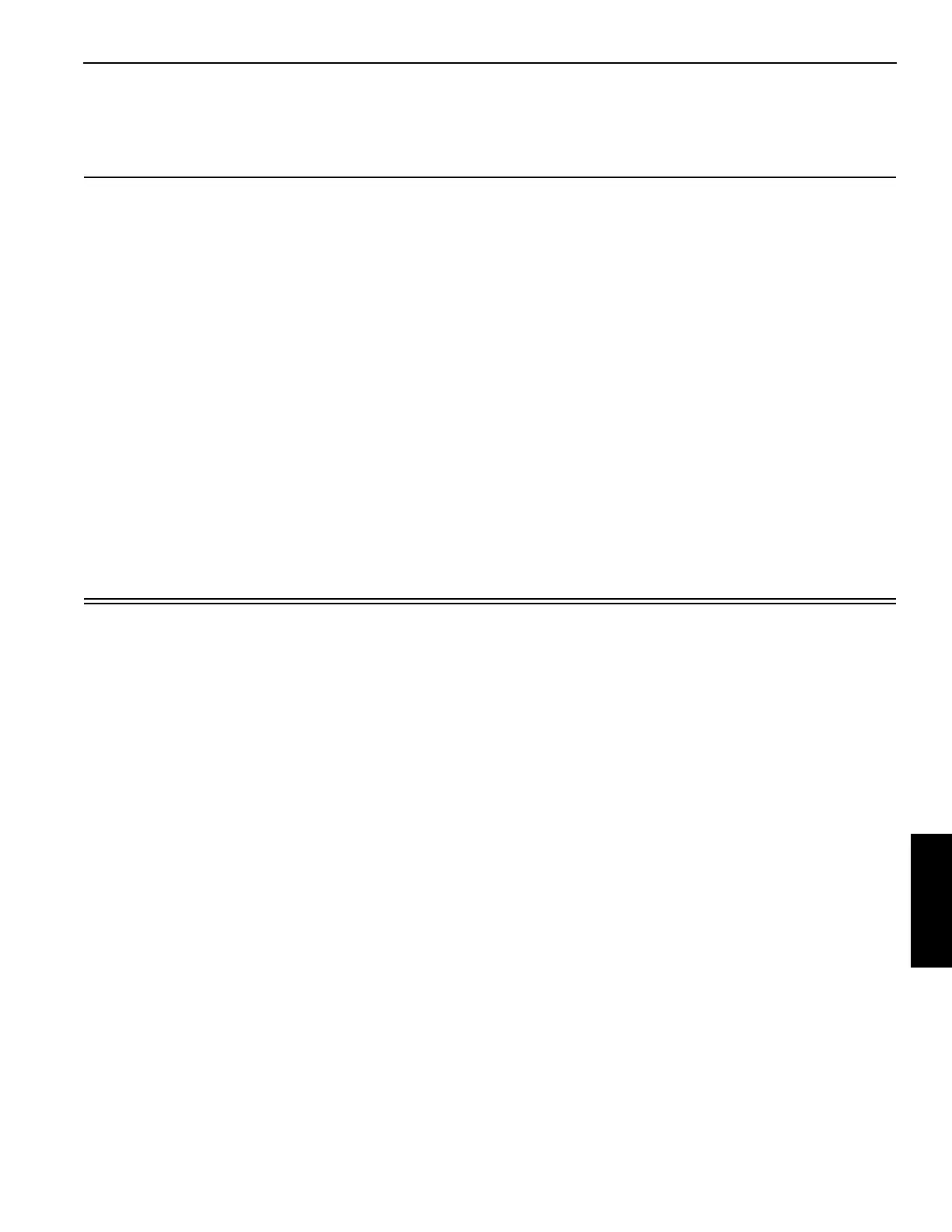